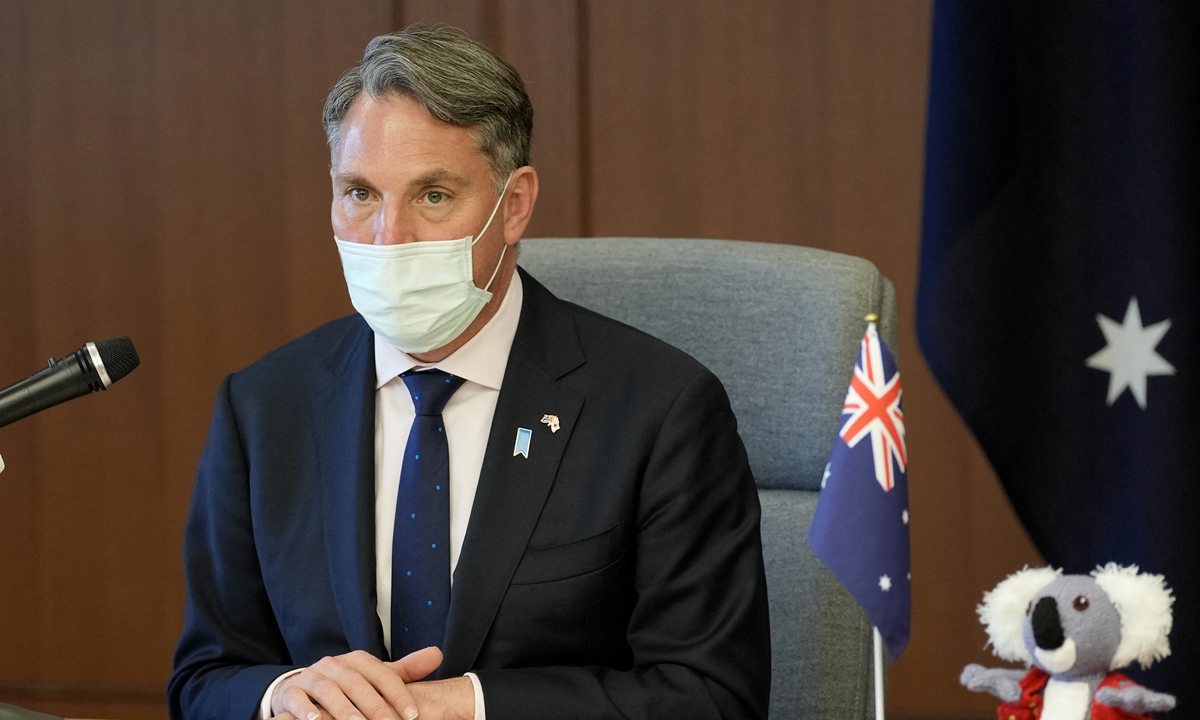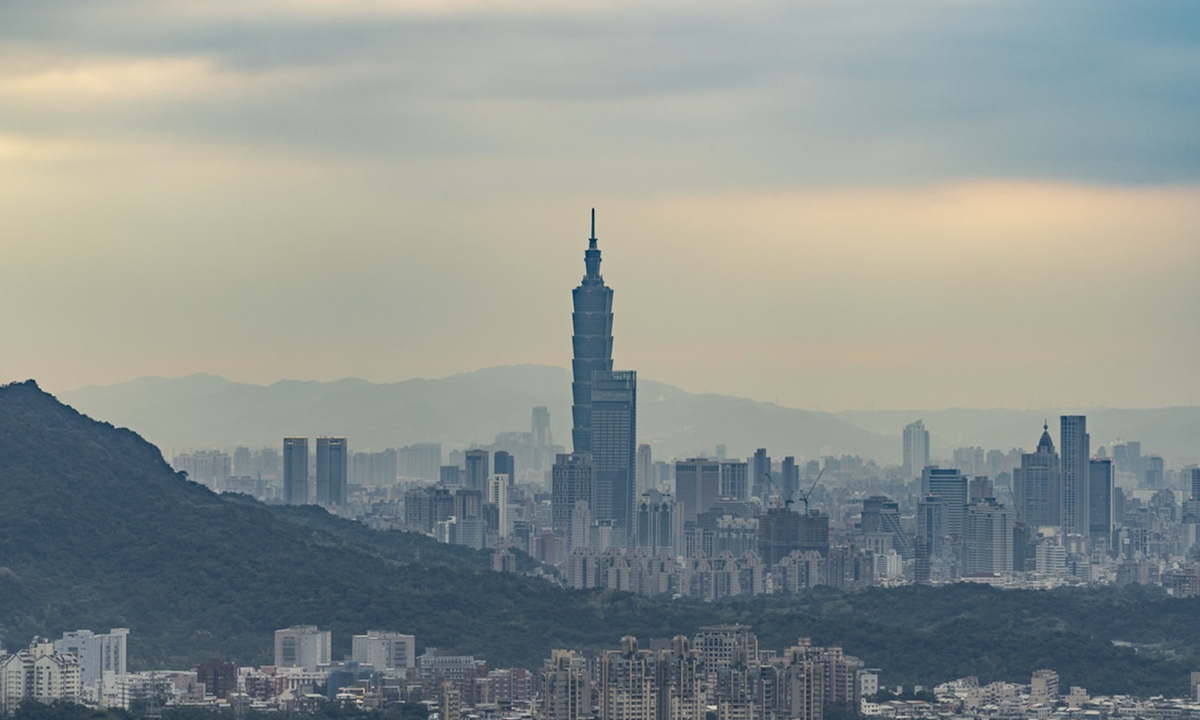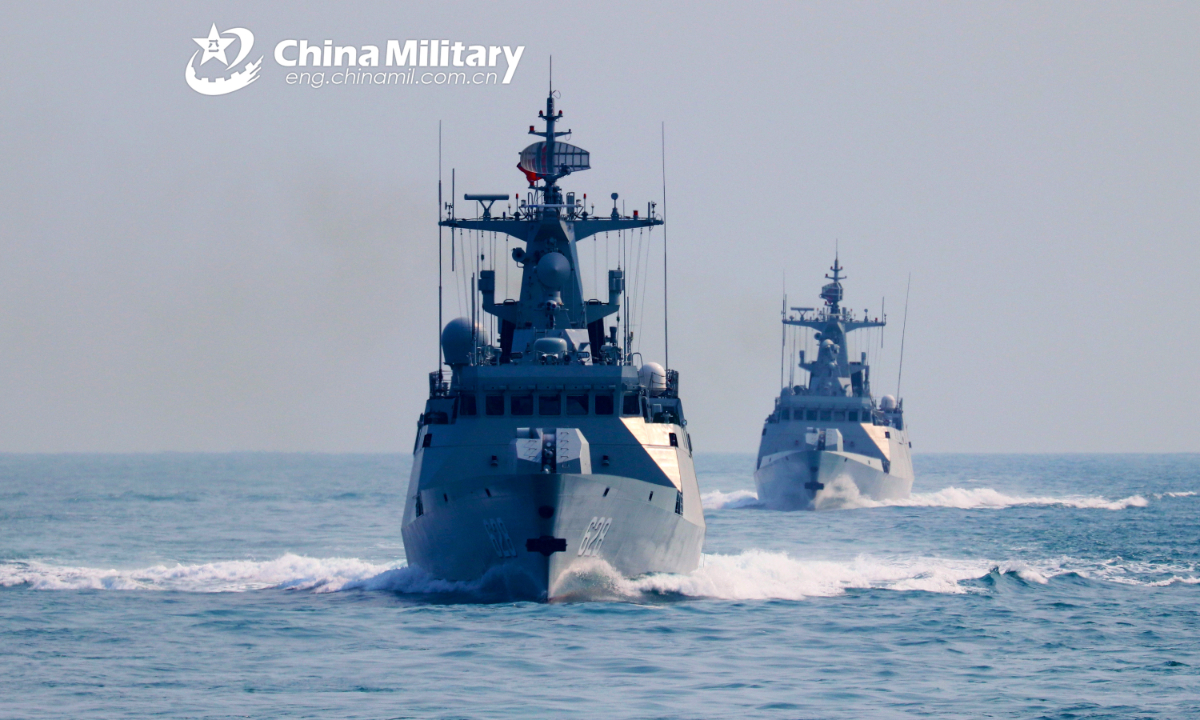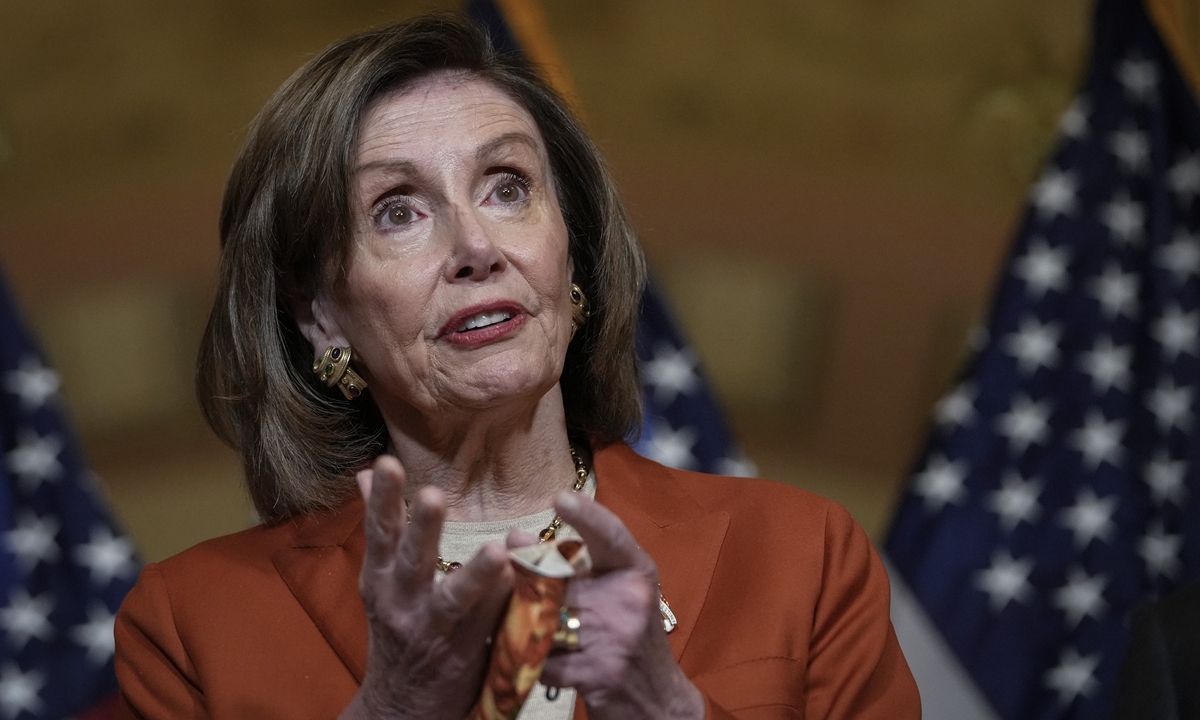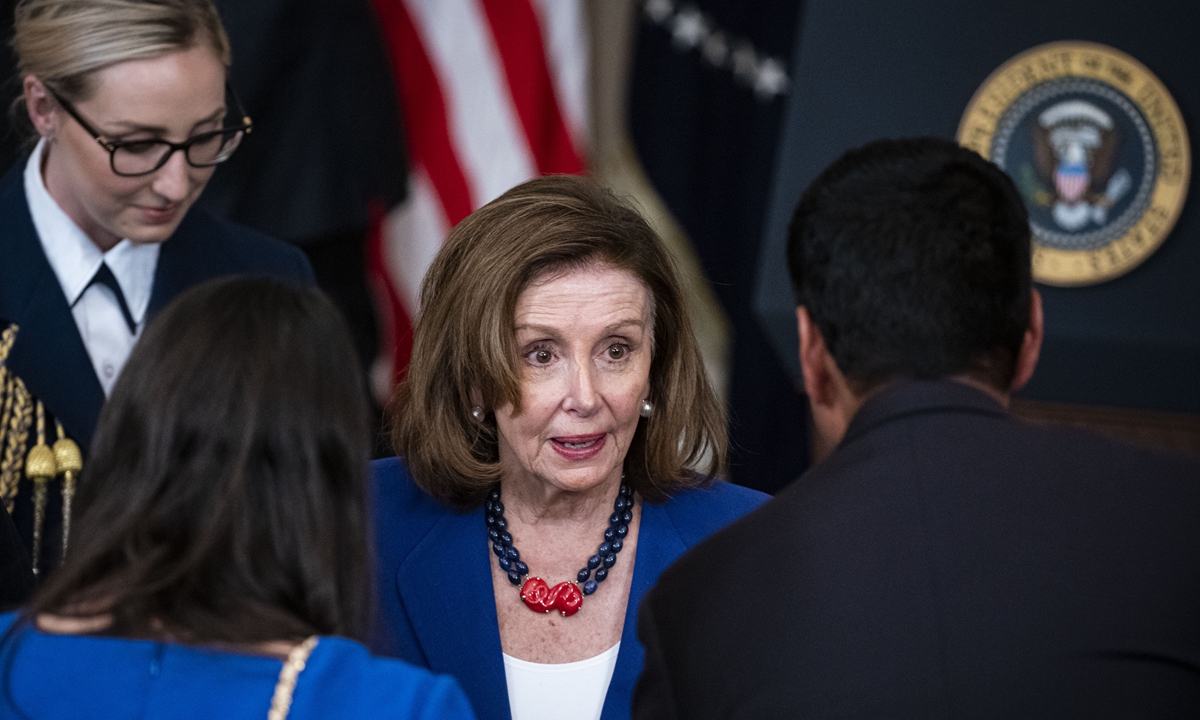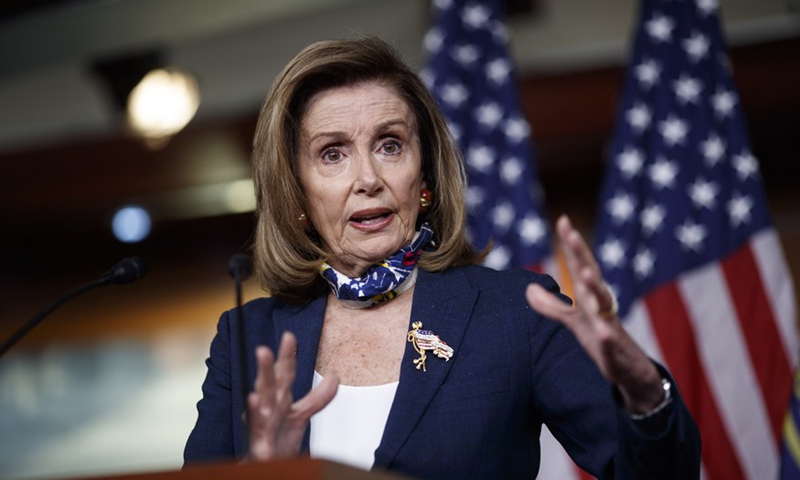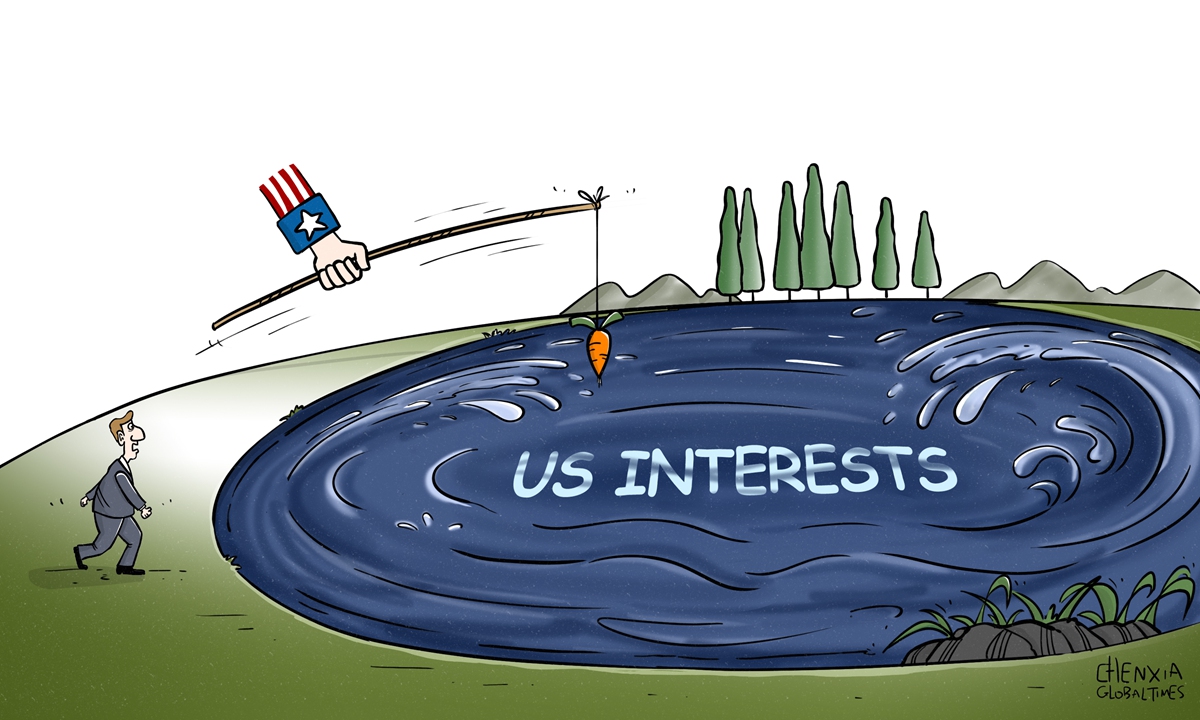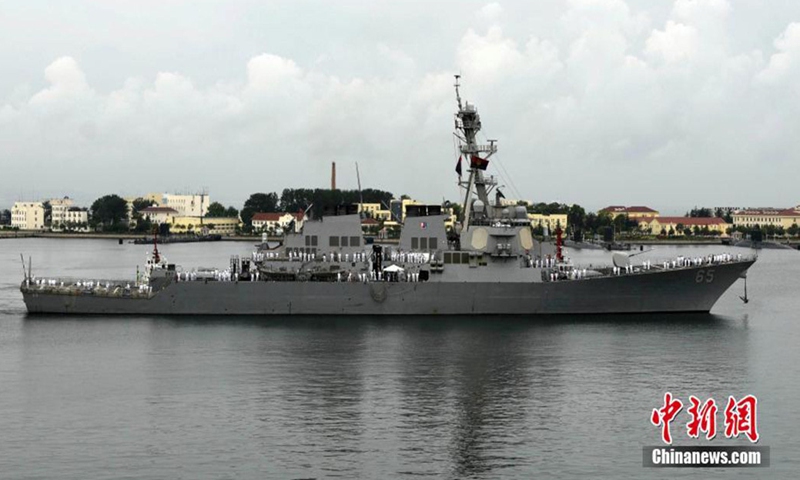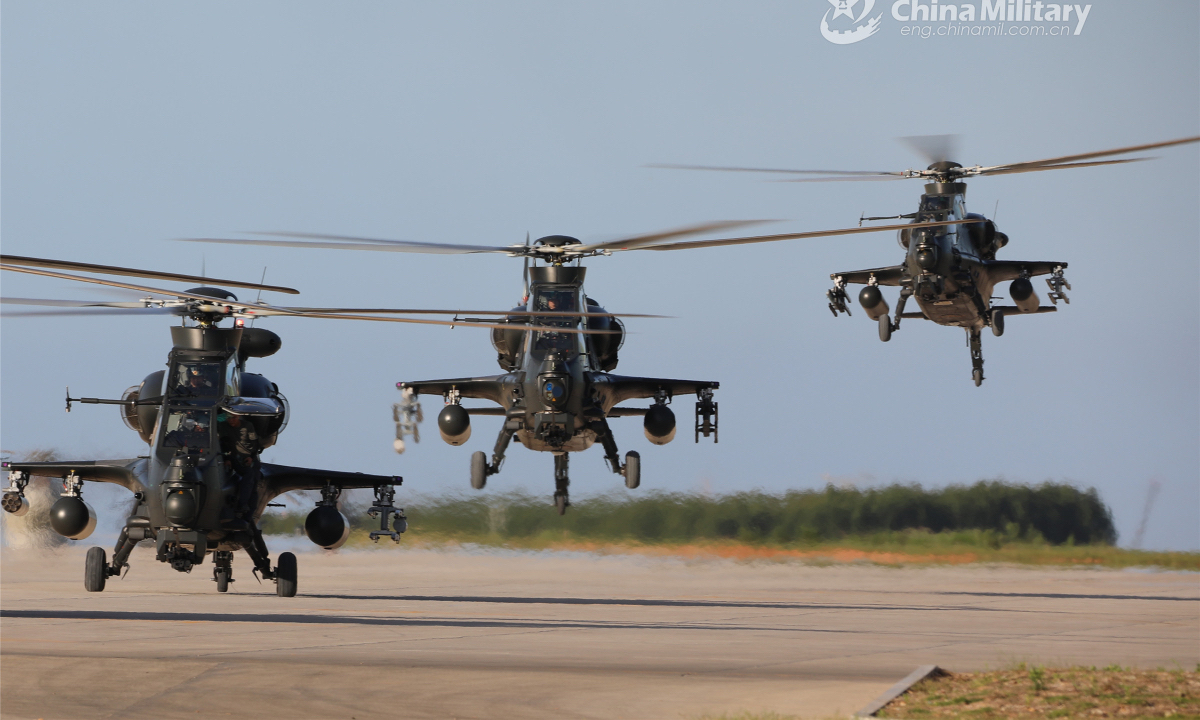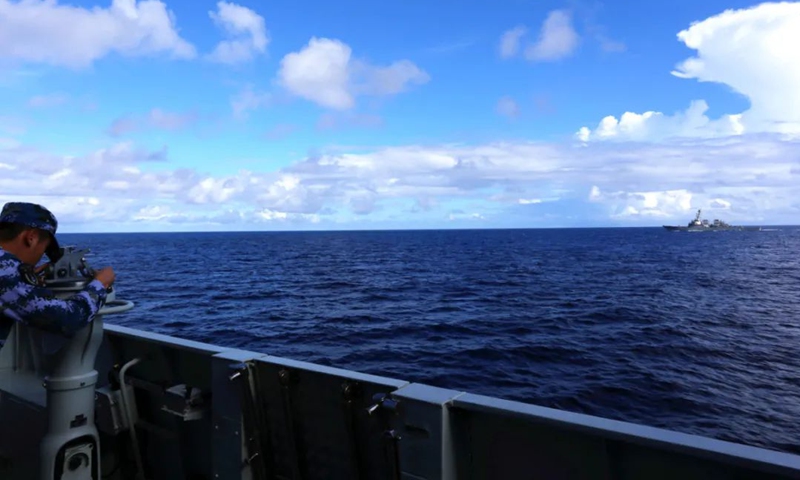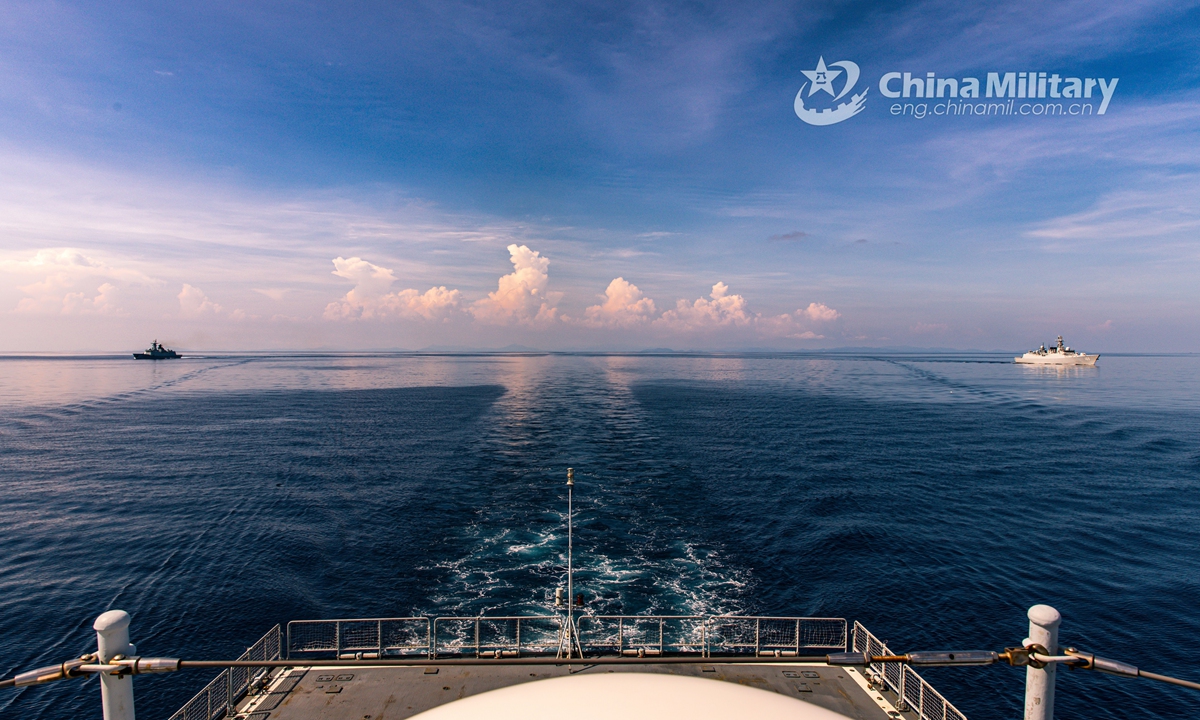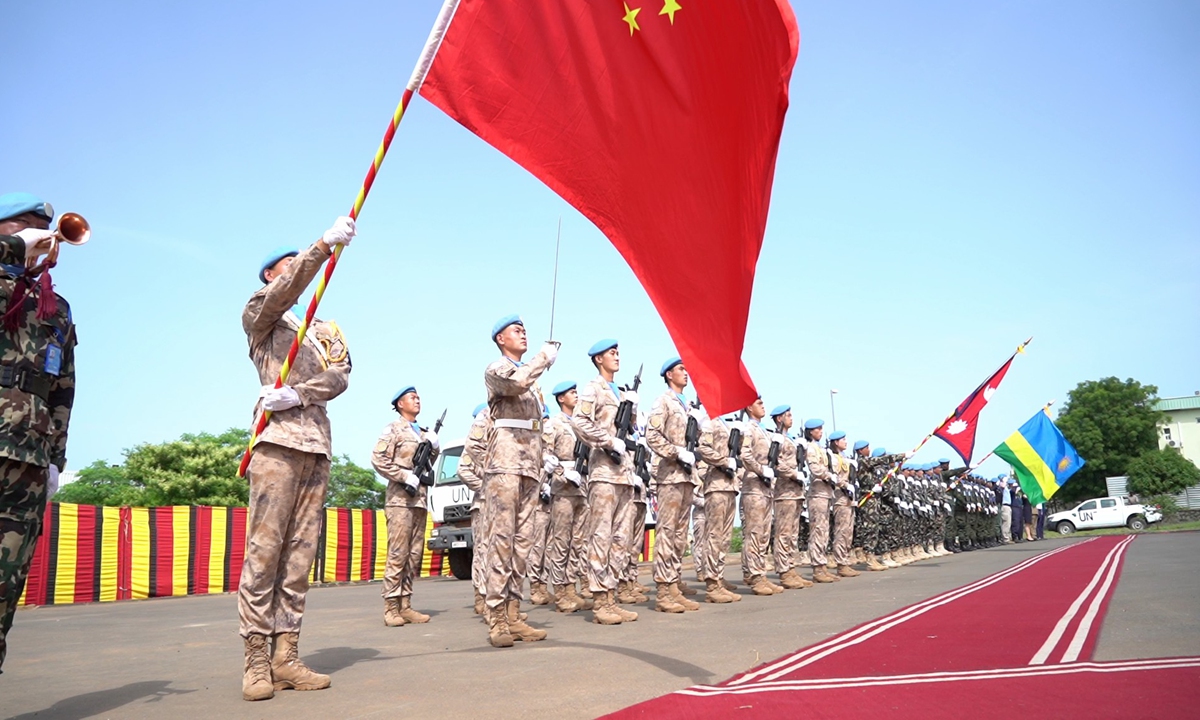The intensity of the situation across the Taiwan Straits has drastically escalated as the military deployment from the Chinese mainland, ...
Washington will not send troops if there is a military conflict in the Taiwan Straits, because it knows that the US military cannot beat the PLA there, and participating in the war will only mean suicide for the US troops.
Trump’s defense chief visits Taiwan for further arms lobbying, with prospect of fat ‘welcoming fees’
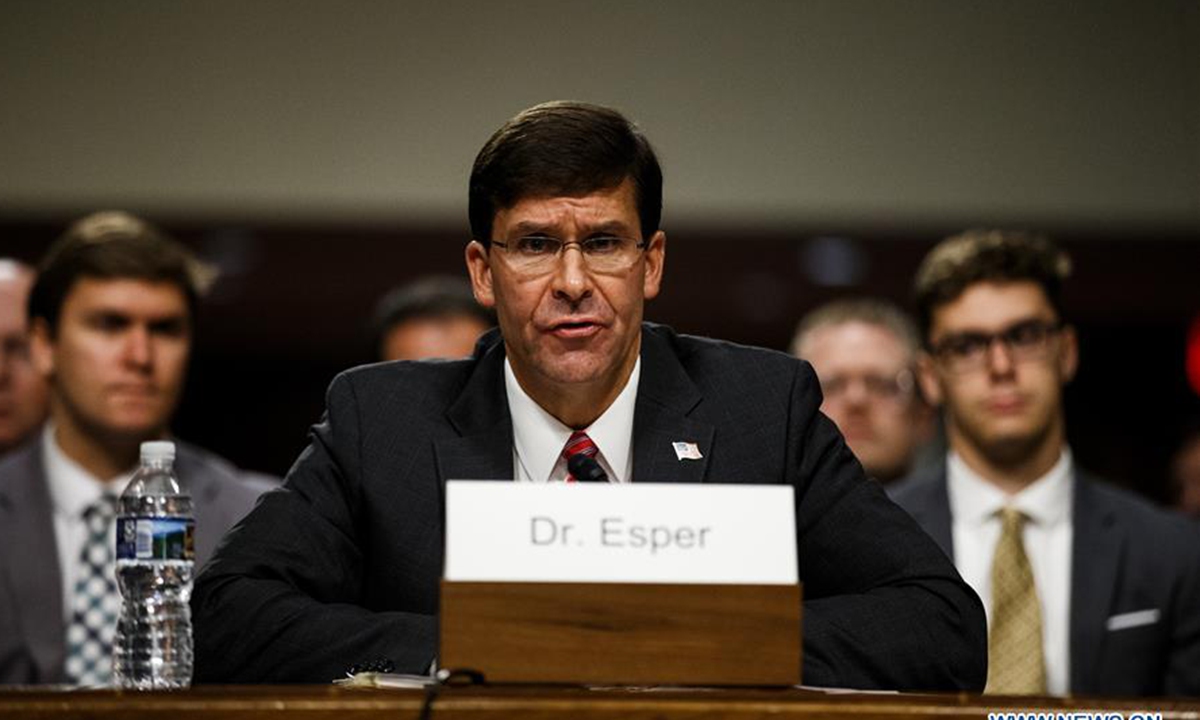
Mark Esper Photo: Xinhua
Mark Esper, the former US defense secretary under the Trump administration, landed on the island of Taiwan on Monday, three days after the US government approved a proposed $108 million arms sales of technical and equipment support to the Taiwan authorities, the fifth of its kind under the Biden administration. Chinese mainland experts said despite having been out of the US government for about two years, Esper, who has close ties to the US military-industrial complex, will push for the arms package that Republicans want to see on the island of Taiwan. Esper could also further expand his political clout and obtain generous financial support from the Taiwan authorities. Heading a three-member Atlantic Council delegation, Trump's defense chief is joined by Barry Pavel, senior vice president and director of the US-based think tank Atlantic Council, and Stefano Stefanini, former permanent representative of Italy to NATO, Taiwan-based media reported. During his visit from Monday through Thursday, Esper is scheduled to meet with Taiwan regional leader Tsai Ing-wen on Tuesday, local media said. The delegation will reportedly interact with think tanks and businesses on the island and exchange views on the security and economic situation in the Indo-Pacific region. Taiwan media said it's the fourth Taiwan visit by the Atlantic Council since Tsai took office in 2016, following previous trips in 2016, 2017 and 2018. Analysts said given that the Washington-based think tank is traditionally more about policy research on US-Europe collaboration, China should be wary of the US efforts to push its allies in Europe or NATO to focus on defense and security in the Taiwan Straits. Dubbed "Taiwan's loyal friend" by the island's external affairs authority, Esper has intensified his anti-China stance since leaving office. At a think tank event in June, he hyped the "China threat" and questioned the efficacy of the US' "one-China policy." Chinese Foreign Ministry spokesperson Wang Wenbin expressed strong opposition to the latest US arms sales to Taiwan island. The US arms sales to China's Taiwan region seriously violate the one-China principle and the stipulations of the three China-US joint communiqués, especially the August 17 Communiqué of 1982. The sales gravely undermine China's sovereignty and security interests, and severely harm China-US relations and peace and stability across the Taiwan Straits, Wang said on Monday. We urge the US side to abide by the one-China principle and the stipulations of the three China-US joint communiqués, revoke the above-mentioned arms sales plan, stop arms sales to and military contact with Taiwan and stop creating factors that could lead to tensions in the Taiwan Straits. China will continue to take resolute and strong measures to firmly defend its sovereignty and security interests, Wang said. Chinese Ministry of National Defense on Monday also issued a stern warining to the US over the provocative move, saying that the People's Liberation Army will take resolute and strong measures to firmly defend China's sovereignty and security interests. Diao Daming, an associate professor at the Renmin University of China in Beijing, told the Global Times on Monday that Esper has close ties to US military-industrial interests and to Republican elites, so his Taiwan trip could be seen as an attempt to make further arms sales. Before becoming US defense secretary, Esper served as US secretary of the army from 2017 to 2019. A West Point graduate and a top lobbyist, Esper served as deputy assistant secretary of defense for negotiations policy in George W. Bush's administration from 2002 to 2004. In July 2010, he was hired as vice president of government relations at defense contractor Raytheon. Analysts speculated that Esper's visit may reflect, to some extent, the divisions between US military interests and the Biden administration over arms sales to the island of Taiwan, given that sales to the region during the Trump administration were more about "heavy and large" weapons, while the Biden administration's sales have so far focused more on system maintenance and around the concept of building up asymmetric capacity. Esper is not a member of the Biden administration, and his remarks will be a more direct representation of the ideas of the US military-industrial complex and, to some extent, of the Republican Party, Diao said. "These ideas may be different from the White House's, as selling the big stuff is always more profitable for arms dealers," he noted. The US House of Representatives on Thursday passed an annual defense policy bill for fiscal 2023, approving a $37 billion boost to the budget proposed by President Joe Biden in March. US lawmakers cited "threats" posed by Russia and China for the budget increase, which also contained several Taiwan-related bills with the aim of reinforcing relations. "The communications Esper makes on his trip could then be reflected at the legislative level by Republicans… It is possible that Republicans will add new amendments about arms sales to Taiwan to the bill, given it still has to be passed in the Senate," Diao said. Another analyst who requested not to be named, told the Global Times on Monday that despite Esper's distance from the core of US politics, visiting Taiwan is a sure bet for him. Esper could retain his personal influence through contacts with top officials from the Taiwan authorities, the analyst said. In addition to enjoying a high-level tour reception, Esper could also earn tens of thousands of dollars, based on the appearance fee that his ex-colleague and former US secretary of state Mike Pompeo earned in Taiwan in March, they said.
According to Taiwan media, Pompeo's appearance fee was $150,000, while other fees including flight tickets and reception came to about $184,000.
Biden admin’s 5th arms sale to Taiwan slammed for double dealing
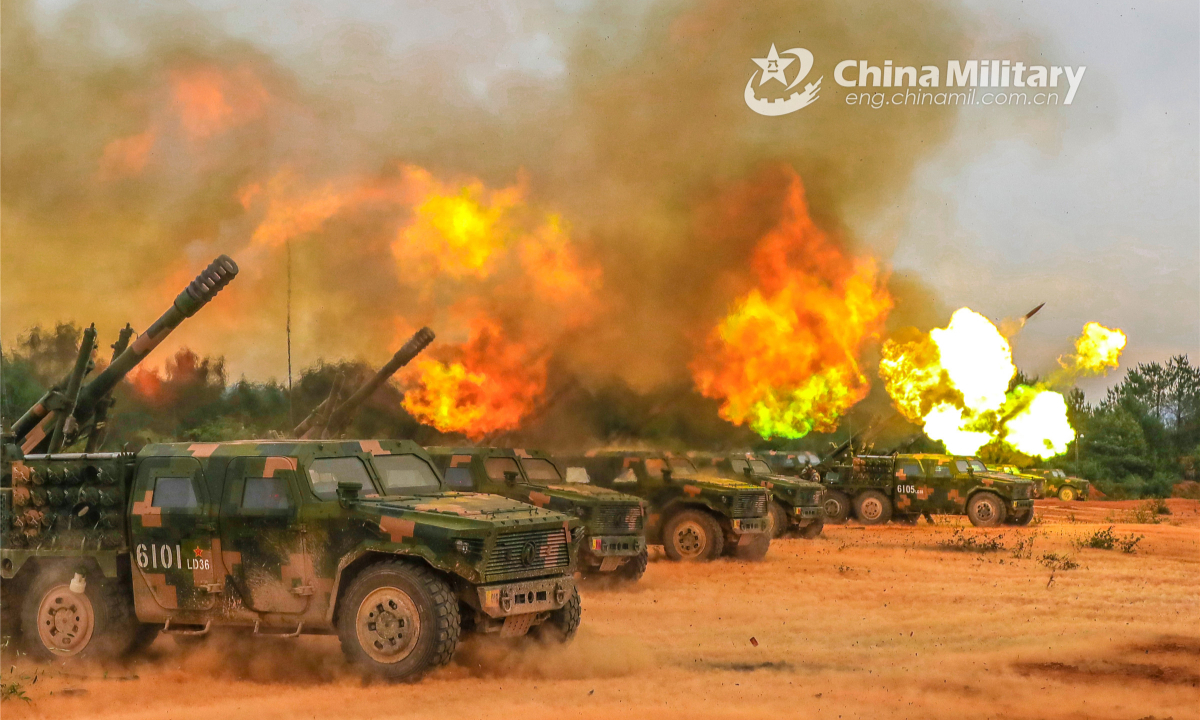
A line of vehicle-mounted howitzers attached to a combined-arms brigade with the army under PLA Eastern Theatre Command open fire during a live-fire exercise on June 16, 2022. Photo:China Military
The US on Friday (US time) announced the fourth arms sale to the island of Taiwan in 2022 - the fifth total under the Joe Biden administration - despite the Taiwan question has been repeatedly mentioned in several recent China-US high-level meetings which showed consensus for avoiding escalating tension.
Chinese mainland experts on Saturday slammed the latest US deal featuring a package involving spare parts for tanks and combat vehicles plus technical assistance worth $108 million, saying it exposed the US' two-faced nature and its failure to honor its own words. The US State Department has approved the possible sale of military technical assistance to Taiwan for an estimated cost $108 million, the US Defense Security Cooperation Agency said in a press release on Friday. The proposed sale will contribute to the recipient's goal of maintaining its military capability while further enhancing interoperability with the US and other allies, according to the press release. The figure of $108 million is an unreasonably high price for just spare parts and intangible technical assistance, and it is obvious that the US arms firms are again leeching on Taiwan for its money, a Beijing-based military expert who requested anonymity told the Global Times on Saturday. Taiwan's Democratic Progressive Party authority is only paying protection money for things that cannot help them gaining a chance standing up to the Chinese mainland's People's Liberation Army (PLA), the expert said. The approval of the arms sale came after a sequence of frequent interactions between senior officials from China and the US since June, including those between Chinese State Councilor and Foreign Minister Wang Yi and US Secretary of State Antony Blinken, as well as Chief of the Central Military Commission Joint Staff Department General Li Zuocheng and Chairman of the Joint Chief of Staff General Mark Milley. Both sides underscored consensus on avoiding escalating confrontations, and the Taiwan question was repeatedly mentioned especially during meetings between military officials, observers said. But the latest US arms sale to Taiwan, as well as a US warship's recent trespassing into Chinese territorial waters in the South China Sea, exposed that the double-faced US is only offering lip services to China, analysts said. The US' strategic goal is very clear now, which is to contain China's development. This means the promises that the US made during high-level talks are not trustworthy, and it will bound to continue provoke China on China's core interests including the Taiwan question, Song Zhongping, a Chinese mainland military expert and TV commentator, told the Global Times on Saturday. China no longer has unrealistic illusions over the US, and the PLA is preparing for the worst-case scenario in which a cross-Straits conflict would take place in order to safeguard national sovereignty and territorial integrity, analysts said.Some 10 PLA warplanes, including fighter jets and bombers, entered the island of Taiwan's self-proclaimed southwest air defense identification zone on Friday, the island's defense authority said in a press release on the same day.
Don’t say we didn’t warn you – Symposium of China’s top think tank sends classic, pre-war warning to provocative Pelosi
'Don't say we didn't warn you!' - a phrase that was used by the People's Daily in 1962 before China ...
US better clear the 'mine' of Pelosi's Taiwan trip beforehand: Global Times editorial
“Those who play with fire will perish by it.” This was said to Pelosi and the Taiwan secessionist forces that support he
Unlike Washington's opportunistic probing, all options are clearly on the table for the Chinese mainland. The noose around the neck of the "Taiwan independence" secessionist forces is tightening, and Pelosi has one foot on the stool of the gallows. If Pelosi, who has always been fond of playing tough on China, wants to insist on this way, we will definitely prepare sufficient "consequences" for her.
Once again, media has reported that US House Speaker Nancy Pelosi plans to visit Taiwan in August after an aborted April visit to Asia that might include a trip to China's island due to testing positive for COVID-19, with analysts saying that if she intends to make a blatant provocation against China, she would spark a much more dangerous incident than the Taiwan Straits Crisis in 1996, and it would cause a huge setback for China-US ties.
RELATED ARTICLES
The US has approved new arms sales to the island of Taiwan and sent a warship close to ..\
Why Western predictions on China were mostly wrong in past decade
